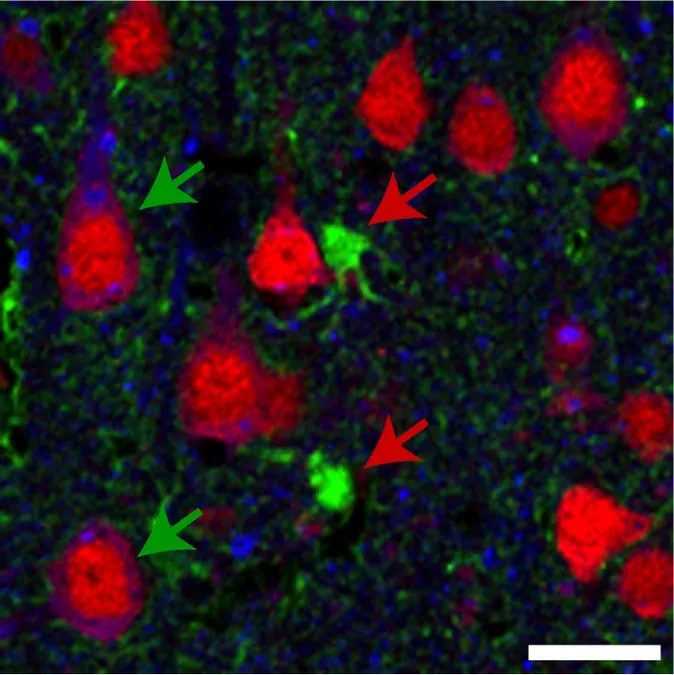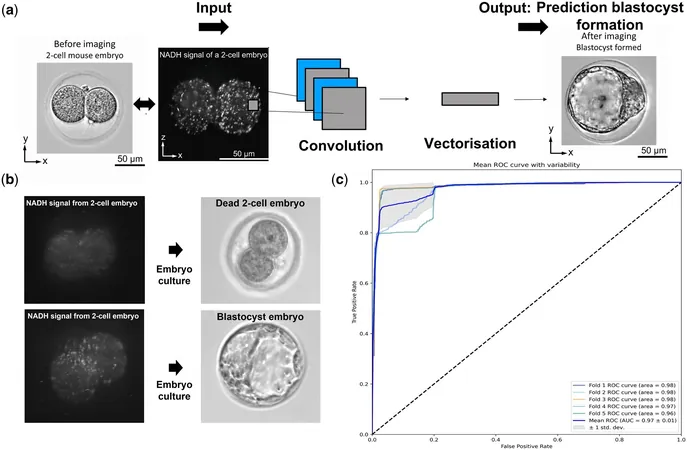
Breakthrough Gene Therapy Shows Promise Against Motor Neuron Disease in Rats!
2024-11-12
Author: Wei
Breakthrough in Gene Therapy
Researchers at the University of Wisconsin–Madison have achieved a significant milestone in the battle against hereditary motor neuron diseases, specifically hereditary spastic paraplegia (HSP), by pioneering a groundbreaking gene therapy approach utilizing CRISPR-Cas9 genome editing technology. This innovative method not only offers hope for affected individuals but also paves the way for potential treatments for similar debilitating conditions in humans.
Understanding HSP
HSP represents a set of rare movement disorders characterized by progressive weakness and stiffness in the legs, often resulting from specific inherited genetic mutations. Unfortunately, these disorders typically lead to severe physical limitations and a life reliant on wheelchairs, drastically impacting the quality of life for those affected.
The Rat Model Breakthrough
Historically, modeling the symptoms and progression of HSP in laboratory animals has posed significant challenges for scientists. However, in a game-changing breakthrough in 2022, a dedicated team of researchers at UW–Madison, led by Professor Anjon Audhya, successfully created a rat model that carries a genetic mutation associated with HSP using CRISPR-Cas9 technology.
Therapeutic Strategy Developed
The mutation targets the Trk-fused gene, crucial for the normal transportation of proteins within neurons. Disruption of this gene's function can lead to increasingly severe symptoms, both in rats and humans. Building upon their rat model's foundation, Audhya and his team have made substantial advancements in testing therapeutic strategies against HSP and have recently reported an exciting new approach that shields these rats from disease onset.
Gene Delivery Through a Virus
Their method employs a genetically engineered virus designed to deliver a healthy copy of the Trk-fused gene directly to the neurons, compensating for the mutated version. Remarkably, when injected into the brains of newborn rats, these animals exhibited no signs of disease and thrived for many weeks without any health complications—heralding a major success in addressing disease symptomology.
Future Implications
"Our findings illustrate the immense potential of gene therapy to prevent HSP symptoms effectively," says Audhya. The therapy enhances the expression of the normal gene in neurons, facilitating better protein transportation and ultimately staving off disease manifestation.
Insight on Disease Mechanism
An additional critical insight derived from their work has been the revelation that HSP primarily affects neurons, rather than other brain cell types like astrocytes. When similar therapeutic strategies were applied to astrocytes, affected rats still developed the disease, emphasizing the necessity for neuron-targeted treatment.
Ongoing Research and Funding
Breaking news doesn’t stop here. Audhya and his team are progressing with follow-up research, developing additional animal models and targeting different gene mutations more commonly found in HSP patients. They are also strategizing to deliver treatments via the spinal cord—an approach that closely aligns with future human applications.
Funding Challenges
Given that HSP is classified as a rare disease, securing funding for such groundbreaking studies can be an uphill battle. Nevertheless, Audhya has garnered significant backing from organizations such as the Blu Genes Foundation, The Lilly and Blair Foundation, and the CureSPG4 Foundation, which have played an essential role in propelling their research toward a viable cure.
Looking Ahead
"Our ultimate aim is to translate these preclinical gene therapy innovations into a clinical trial for patients in the foreseeable future," Audhya concludes. As researchers continue to explore the power of gene therapy in the fight against devastating genetic conditions, the promise of improved treatments and better lives for patients may soon become a reality!
Stay Updated
Stay tuned for updates on this promising research and how it could change the lives of countless individuals suffering from HSP and similar disorders!




 Brasil (PT)
Brasil (PT)
 Canada (EN)
Canada (EN)
 Chile (ES)
Chile (ES)
 España (ES)
España (ES)
 France (FR)
France (FR)
 Hong Kong (EN)
Hong Kong (EN)
 Italia (IT)
Italia (IT)
 日本 (JA)
日本 (JA)
 Magyarország (HU)
Magyarország (HU)
 Norge (NO)
Norge (NO)
 Polska (PL)
Polska (PL)
 Schweiz (DE)
Schweiz (DE)
 Singapore (EN)
Singapore (EN)
 Sverige (SV)
Sverige (SV)
 Suomi (FI)
Suomi (FI)
 Türkiye (TR)
Türkiye (TR)